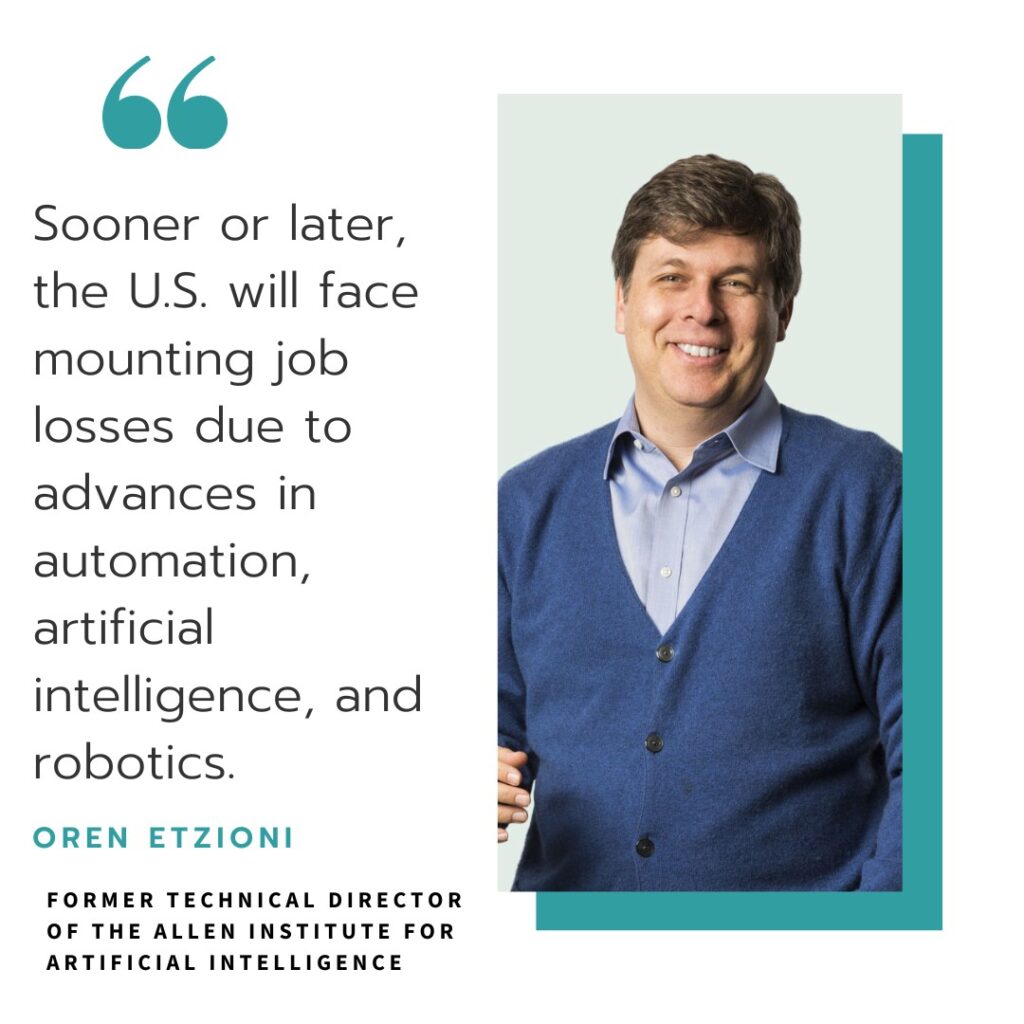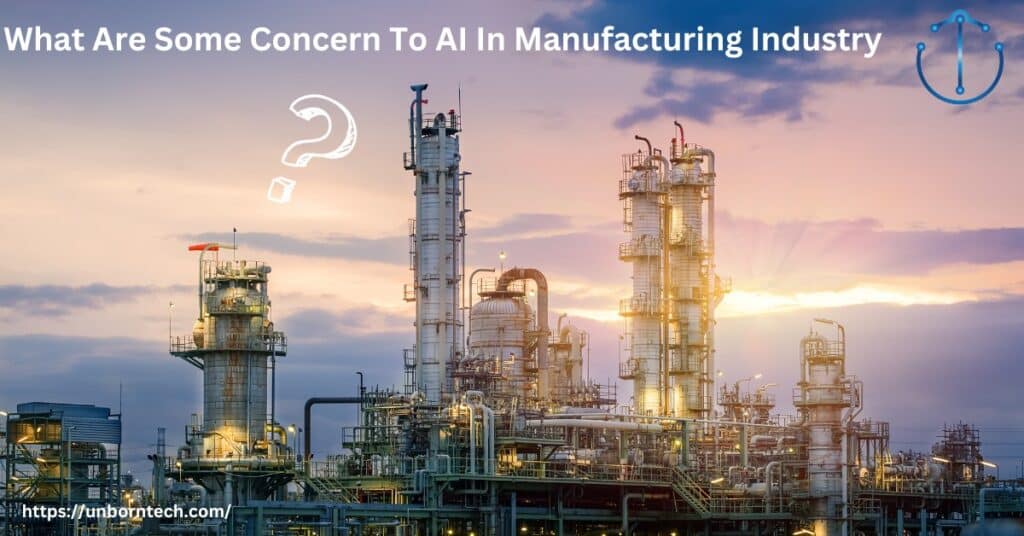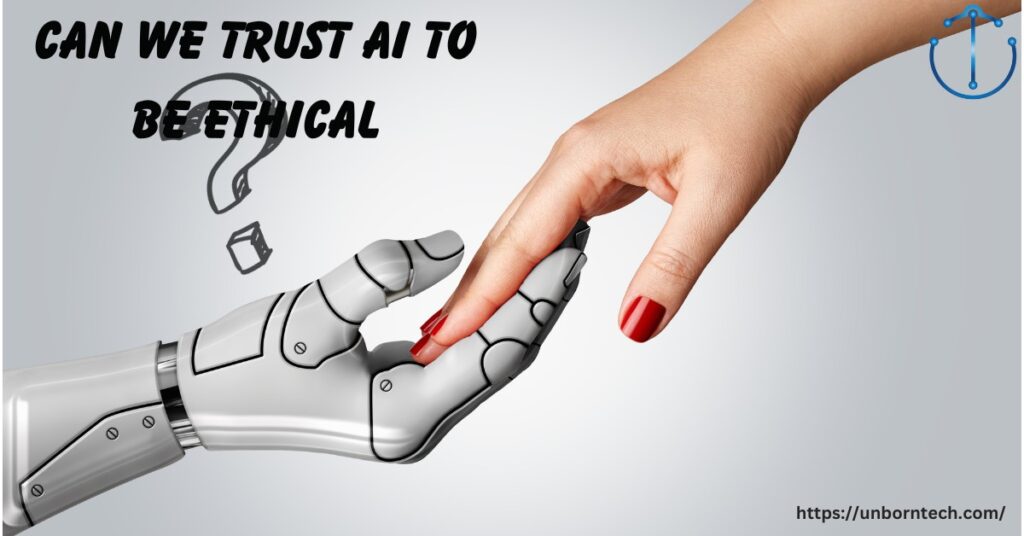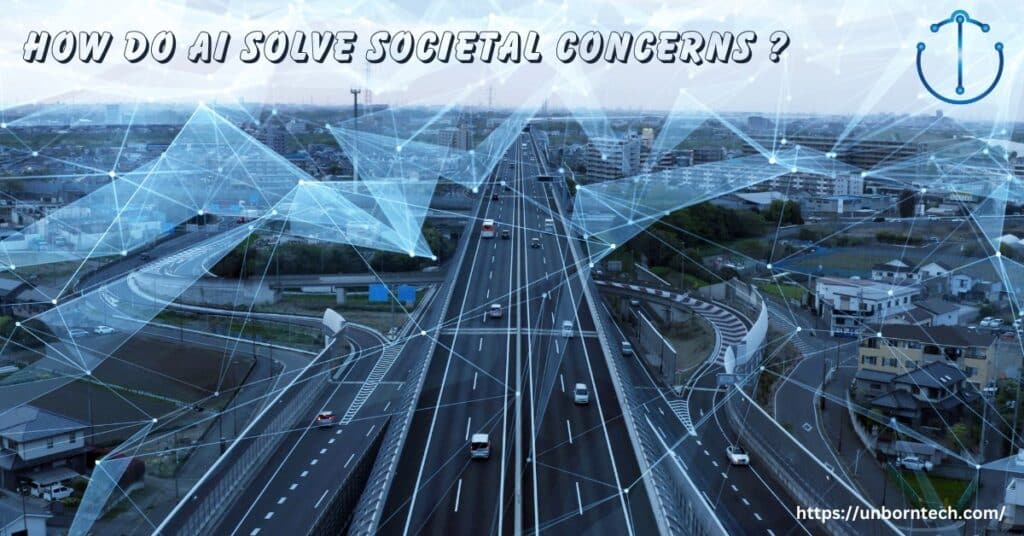Artificial Intelligence has emerged as a transformative force in various industries, and the manufacturing sector is no exception.
AI is reshaping manufacturing, with the global market surging from USD 3.8 billion in 2022 to an anticipated USD 68.36 billion by 2032, boasting a remarkable 33.5% CAGR. This exponential growth underscores the industry’s rapid adoption of AI technologies.
However, as the industry embraces this technological evolution, it is crucial to address the concerns that accompany the integration of AI.
In this blog post, we will delve into some of the key concerns for AI in the Manufacturing Industry, exploring potential challenges and their implications.
Table of Contents
8 Concerns About AI In Manufacturing Industry
Here are some of the major concerns regarding AI in the manufacturing industry.
1 – Job Displacement
One of the foremost concerns surrounding the implementation of AI in manufacturing is the potential for job displacement. Automation and AI-driven technologies can lead to the streamlining of production processes, reducing the need for manual labor.
According to a report by the World Economic Forum, it is estimated that by 2025, automation and AI could displace around 85 million jobs globally in medium and large-sized enterprises.

While AI creates new roles, the challenge lies in reskilling the workforce to adapt to these changes.
2 – Ethical Considerations
The use of AI in manufacturing also raises ethical concerns.
For instance, autonomous machines and robots may lack the ability to make ethical decisions in complex situations, leading to potential safety hazards. There is a need for clear guidelines and regulations to address ethical concerns associated with AI in manufacturing.
As highlighted by a report from the European Parliament, ethical considerations should be integrated into the design, development, and deployment of AI technologies to ensure responsible and safe use.
Read More: Can We Trust AI To Be Ethical?
Example: In 2018, an Amazon recruitment tool, which utilized AI to screen resumes, was criticized for gender bias. The tool reportedly favored male candidates, shedding light on the ethical challenges associated with AI applications in hiring and decision-making processes.
3 – Interoperability Challenges
As manufacturers adopt AI solutions, ensuring seamless integration with existing systems can be a formidable challenge.
Many companies already have legacy systems in place, and integrating AI may require significant investments in infrastructure and training. Interoperability issues can hinder the overall efficiency gains that AI promises.
Manufacturers need to carefully strategize and plan for a smooth transition to an AI-driven environment.
4 – Data Security and Privacy
As manufacturing processes become more interconnected through AI, the industry becomes more vulnerable to cyber threats. The vast amount of data generated by smart manufacturing systems poses a significant challenge in terms of data security and privacy.
Malicious actors could exploit vulnerabilities, leading to potential theft of sensitive information, industrial espionage, or even the manipulation of manufacturing processes.
Example: A study by Deloitte found that 40 percent of manufacturing companies identified data privacy and security concerns as a significant barrier to the adoption of AI and other digital technologies.

Safeguarding intellectual property and customer information is paramount, requiring robust cybersecurity measures to mitigate potential risks.
Read More: Will AI Replace Cybersecurity Jobs?
5 – Cost of Implementation
While AI promises long-term cost savings through increased efficiency and reduced waste, the initial cost of implementing AI technologies in manufacturing can be substantial.
Small and medium-sized enterprises (SMEs) may find it challenging to invest in cutting-edge AI solutions, limiting their ability to compete on a technological level.
According to WebFX, custom AI solutions can cost companies up to 6,000 – 30,000 US dollars.
Governments and industry leaders need to explore ways to incentivize AI adoption for all manufacturers, ensuring a level playing field and fostering industry-wide innovation.
6 – Lack of Standardization
The lack of standardization in AI applications poses a concern for the manufacturing industry. Different manufacturers may adopt varying AI systems, leading to interoperability issues and hindering collaboration across supply chains.
Standardizing protocols and frameworks for AI implementation is crucial to ensure seamless integration, data sharing, and efficient communication between different components of the manufacturing ecosystem.
Initiatives such as the International Electrotechnical Commission’s (IEC) work on developing standards for AI in manufacturing are essential for creating a common framework that promotes compatibility and scalability.
7 – Accountability and Responsibility
The rise of AI in manufacturing brings forth a crucial question – Who is accountable if an AI system makes a decision that results in harm?
With autonomous machines making decisions based on complex algorithms, the issue of accountability becomes a gray area.
Establishing clear lines of responsibility is essential to address potential legal and ethical challenges. Manufacturers need to develop frameworks that define roles and responsibilities, ensuring transparency and accountability in the event of unforeseen consequences.
8 – Lack of Workforce Skills
While AI promises increased efficiency, the lack of skilled personnel poses a significant challenge. There is a growing concern about a shortage of skilled professionals capable of developing, implementing, and maintaining AI systems in the manufacturing sector.
According to a study by the Manufacturing Institute, 82% of manufacturers report a shortage of skilled production workers.
Addressing this gap requires concerted efforts in workforce training and education programs to equip personnel with the skills necessary to operate and manage AI-driven technologies.
Conclusion
As the manufacturing industry continues to embrace AI, addressing these concerns is vital for sustainable and responsible integration. While the benefits of AI in manufacturing are undeniable, a thoughtful approach, ethical considerations, and proactive measures to mitigate potential risks are essential.
By navigating these concerns effectively, the manufacturing sector can harness the full potential of AI while fostering a balanced and responsible technological future.






